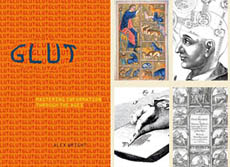The Whuffie Paradox
February 17, 2006
Eugene Garfield coined the term "obliteration phenomenon" to describe an interesting bibliographical paradox: sometimes the most influential writing leaves almost no mark in the paper trail.
The canonical example is Einstein's theory of general relativity, which, despite its obvious importance to the whole enterprise of twentieth century science, almost never gets cited in scientific research papers. In Web terms, that means Einstein would get an absurdly low pagerank.
Similarly, a great deal of important work gets "obliterated" if you measure influence purely in terms of citations (or, I would argue, hyperlinks). Whiles citation analysis gives an excellent picture of how influence works in the great middle tier of scholarship, the technique falls on its face when it comes to truly groundbreaking work, which often tends to get buried in an avalanche of footnotes for follow-on, derivative works.
Which leaves me wondering, is there a corollary effect on the Web? The sheer explicitness of Web linking seems to privilege measurable manifestations of influence: Google pagerank, Technorati rankings, traffic stats, and so forth. Does such a myopic focus on metrics mask the subtler dimensions of influence? Are there hidden works out there exerting a deeper, implicit influence that doesn't show up in terms of pagerank? This is a tough hypothesis to prove, but I suspect that pagerank and other supposedly meritocratic weighting algorithms give us an overly simplistic and potentially misleading notion of how influence really works.
In other words: Can you really bottle the whuffie?
Ironically, the greatest example of obliteration phenomenon on the Web may just be Eugene Garfield himself. Never heard of Eugene Garfield, you say? I dare say you're not alone; few non-librarians have. Two people who have very definitely heard of Eugene Garfield are Larry Page and Sergey Brin. If it wasn't for Garfield's breatkhrough work on citation analysis, there would be no such thing as pagerank. Or, for that matter, Google.
File under: Informatics
_____________________« Gestural interfaces | Rereading the Renaissance »
GLUT:
Mastering Information Through the Ages
New Paperback Edition
“A penetrating and highly entertaining meditation on the information age and its historical roots.”
—Los Angeles Times
